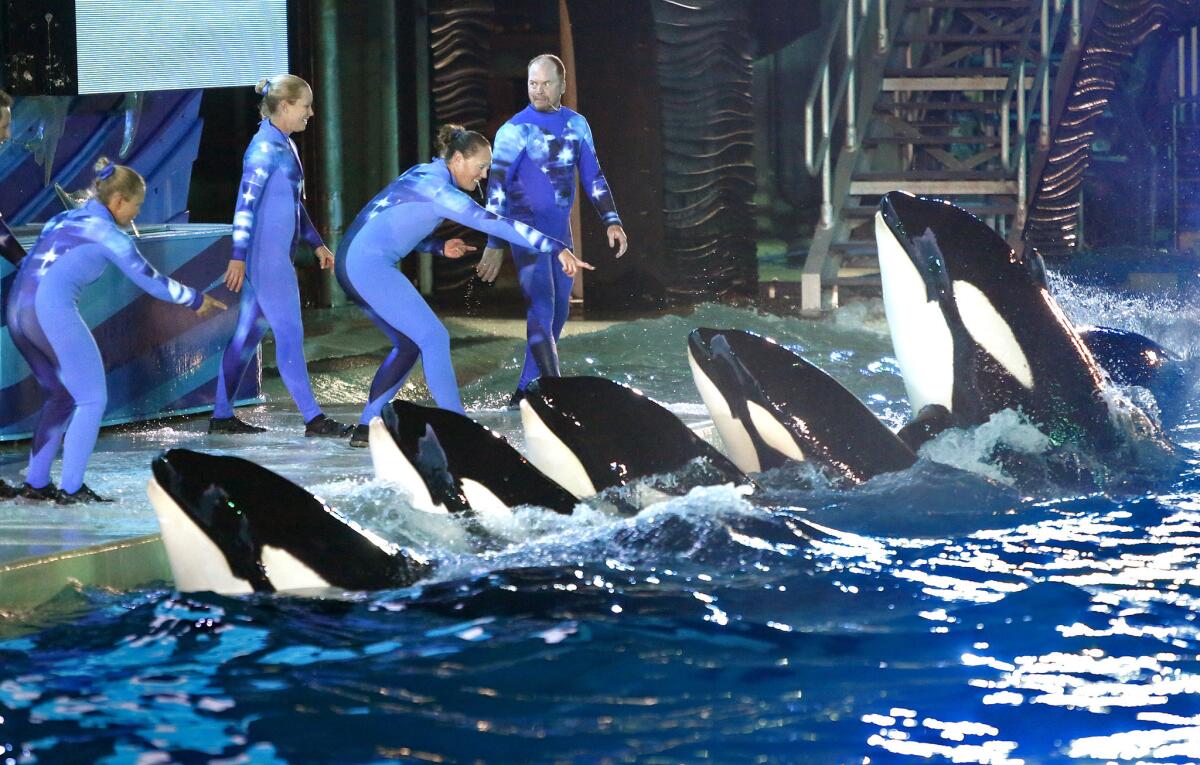Shareholder sues SeaWorld over ‘Blackfish’ fallout

- Share via
SeaWorld Entertainment Inc. lied about the cause of a decline in attendance last year, which artificially inflated the value of company shares, according to a lawsuit.
The lawsuit, filed Tuesday in U.S. District Court in San Diego by Lou Baker, a shareholder from Michigan, seeks unspecified damages on behalf of other people who bought stock in the last year.
Baker is represented by the Rosen Law Firm of Los Angeles.
SeaWorld Entertainment, which operates SeaWorld San Diego and SeaWorld Orlando in Florida, has faced harsh criticism from animal rights groups since the release last year of “Blackfish,” a documentary that accuses the parks of mistreating killer whales.
The lawsuit, which seeks class-action status, charges that attendance at SeaWorld parks dropped last year as a result of the negative publicity following the release of “Blackfish,” but that SeaWorld officials falsely attributed it to weather and a shift in the timing of Easter.
The lawsuit says SeaWorld also lied about the treatment of the whales at the parks, which artificially inflated the value of SeaWorld shares.
SeaWorld raised $702 million in its initial public offering in April, selling 26 million shares at $27 each.
But SeaWorld shares dropped by 33% last month when the company missed Wall Street expectations and officials acknowledged for the first time that negative publicity had hurt attendance numbers.
SeaWorld officials declined to comment on the lawsuit.
The animal rights group, People for the Ethical Treatment of Animals, said it has purchased shares of SeaWorld Entertainment so it can attend shareholder meetings and influence the company.
A spokesman for PETA said Baker, the plaintiff, is not affiliated with their group.
Wall Street doesn’t seem too concerned about the controversy.
An analyst for FBR Capital Markets & Co. issued a report last month, predicting the controversy over “Blackfish” will abate.
“History suggests that animal concerns fade, including the sharp rebound in SeaWorld attendance in 2011 after a tragic trainer death in 2010,” the report said.
In response to the latest controversy, SeaWorld announced plans to double the size of its orca environment, contribute an additional $10 million to research on the species and establish an independent advisory committee of scientists to oversee its orca program.
To read more about travel, tourism and the airline industry, follow me on Twitter at @hugomartin.
More to Read
Inside the business of entertainment
The Wide Shot brings you news, analysis and insights on everything from streaming wars to production — and what it all means for the future.
You may occasionally receive promotional content from the Los Angeles Times.











